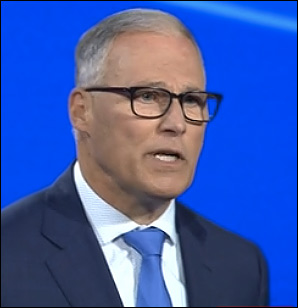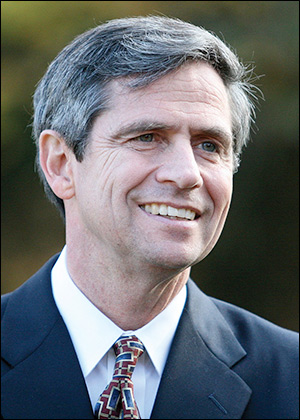By Jim Ellis

Sen. Ed Markey recorded a strong double-digit victory over Rep. Joe Kennedy III (D-Newton) yesterday in Massachusetts.
Sen. Markey’s victory spread landed at exactly 10 percentage points with an estimated 20 percent of the vote still outstanding, 55.5 – 45.5 percent, and the 131,651-vote margin left no doubt about the outcome. Turnout is just under 1.2 million Democratic voters and will go higher when late-arriving ballots are collected and counted. The total turnout could reach 1.5 million individuals, which would be higher than the March 3 Democratic presidential primary participation figure that fell just under 1.4 million.
The county largely responsible for the senator’s victory margin was his home county of Middlesex; with a total population figure of over 1.5 million people, it’s the state’s largest local entity. There, Sen. Markey recorded a 65-35 percent margin and an 88,858-vote spread, which accounts for two-thirds of his statewide vote difference. Sen. Markey scored majorities in 10 of the state’s 14 counties.
The only place Rep. Kennedy recorded a county victory outside of his 4th Congressional District was in western Massachusetts. He carried Hampden County, which houses the city of Springfield, and, rather surprisingly, Worcester County despite the flap that found the Kennedy campaign sending a mailer into the locality with the name spelled, “Worchester.”
Temporarily, at the very least, Rep. Kennedy’s defeat spells the end of the Kennedy family political dynasty in the state. In fact, according to the MSNBC network, this is the first loss for a family candidate in 27 Democratic primary campaigns dating back to when John F. Kennedy won the 1946 congressional primary in what was then the Boston area’s 11th CD.






 May 21, 2019 — Today we continue with our overview of the 24 Democratic presidential candidates. Yesterday we outlined the first 12, and today we’ll finish up with the remaining candidates (listed alphabetically):
May 21, 2019 — Today we continue with our overview of the 24 Democratic presidential candidates. Yesterday we outlined the first 12, and today we’ll finish up with the remaining candidates (listed alphabetically):